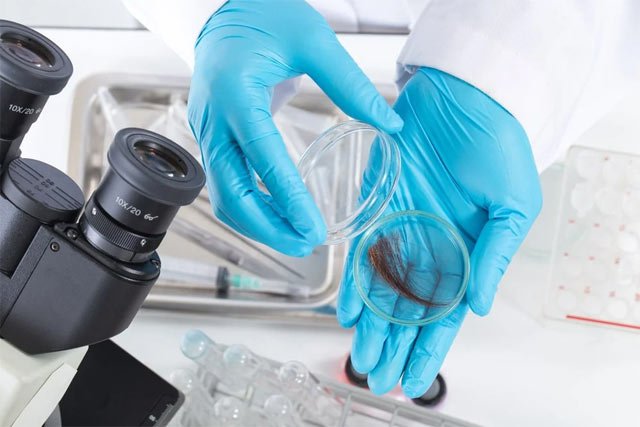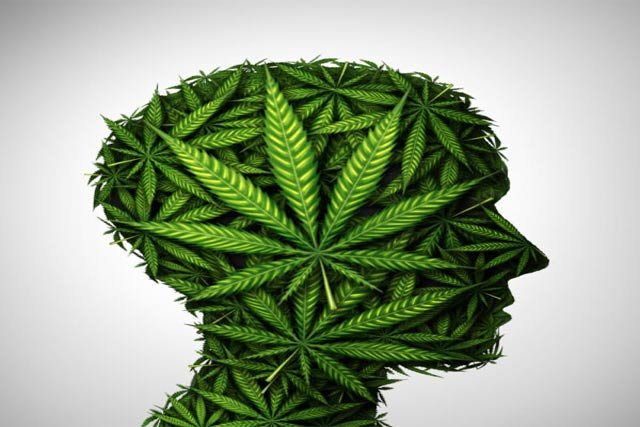The drug can linger in your body for weeks or even months despite the quick fading of marijuana’s effects. In fact, the amount of time the active ingredient- Tetrahydrocannabinol, the component that makes you feel “high”- remains in your system ranges from a few hours to 90 days.
Typically, marijuana detection windows greatly depend on how often you smoke and the amount of weed you ingest into your body. More frequent usage and higher dosage generally extend detection periods.
How the Body Metabolizes Marijuana
To understand fully how long marijuana stays in the system, it is essential to establish how it travels and interacts in the body. When you smoke or vaporize weed, THC enters your bloodstream through the lungs.
The bloodstream carries it to the heart, where it pumps it throughout the body and binds with the cannabinoid-1 receptors in the brain, organs, and central nervous system.
It also binds with the cannabinoid-2 found in the spleen and immune system. The liver breaks down THC into metabolites as it continues to circulate through the bloodstream.
But, when you ingest cannabis through capsules and edibles, THC enters the bloodstream through the stomach and intestinal walls. It is metabolized in the liver and then circulated to the rest of the body.
Since THC is lipid-soluble, it can bind with CBD-1 and -2 as well as the fats in the body. That increases the time it takes for you to eliminate THC from the body completely.
Marijuana Detection Windows
Marijuana detection windows depend on the type of test you undertake. Generally, the estimates for marijuana tests are as follows:

Urine Testing
Marijuana is detectable in urine for approximately:
- 3 days for occasional users (two times a week)
- 5 to7 days for moderate users (four times a week)
- 10 to 15 days for chronic users (daily)
- More than 30 days for chronic heavy users (multiple times a day)
Saliva Testing
Weed can enter your saliva through smoking or exposure to smoke. But, its metabolites are present in the saliva only when weed has been ingested or smoked. https://www.ncbi.nlm.nih.gov/pmc/articles/PMC4532432/ a study on cannabinoids in oral fluid shows that weed is detectable in saliva for these amounts of time after last use:
- 1 to 3 days for occasional users
- 1 to 29 days for chronic users
Blood Testing
THC is detectable in your bloodstream within seconds of inhalation. The blood reabsorbs THC as it is distributed to the tissues, breaking it down and allowing the metabolites to linger in the bloodstream for 3-4 hours. Detectability in the blood can extend from 1 to 2 days, with some cases showing detection for up to 25 days. Chronic heavy usage can prolong the duration of detectability.
Hair Testing
A hair test is the most sensitive test that detects THC for up to 3 months after use. After use, marijuana reaches the hair follicles through the tiny blood vessels, and an amount of trace may remain in your hair. Since hair grows to about 0.5 inches each month, a 1.5-inch hair segment taken too close to your scalp can detect weed usage for the past 90 days.

Now that the test is used to test the oil in the skin that transfers to your hair, it may occasionally confirm a false positive. If a person comes into contact with a user of THC, he or she could theoretically test positive on a hair test.
Please note that tests that are more sensitive are able to detect lower doses of THC.
Factors that Influence Detection
To detect the presence of weed in the body, many drug test methods look for a metabolite known as the 11-nor-9-carboxy-THC or THC-COOH. Even so, numerous factors can influence whether a test detects cannabis. That includes:
Metabolism
For a negative drug test result, the body should eliminate THC and metabolic products that are linked to THC from your system. Hence, people with faster metabolisms can remove THC more quickly than those with slower ones. Remember that metabolism is usually influenced by physical activity, age, and certain health conditions.
Bodily fat and BMI
Since THC metabolites are usually stored in the fat cells, people with higher concentrations of body fats or BMI might metabolize and excrete marijuana slowly from the body. Generally, females have more bodily fats than males. That means females metabolize THC at a slower rate than their male counterparts.
Exercise
While exercise will not change the rate at which you metabolize THC, doing it right before a drug test might influence detection. A study https://www.ncbi.nlm.nih.gov/pubmed/24018317 assessed how 35 minutes of exercise on a stationary bike could affect detection. The results showed that THC concentrations increased substantially. This suggested that exercise before a drug test can increase the chances of a positive test result.
Hydration
When you are dehydrated, you will have more concentrations of weed in the body. However, flooding yourself with water will not make you pass a drug test– water will only dilute it.

The Strain Consumed
The amount of THC can widely vary between different marijuana strains. If weed is vaped or smoked, the THC levels in the body tend to drop faster than if you ingest it. That is because the edibles can take longer to break down in the body and leave the system.
Frequency of use
The length of time that THC remains in the body is affected by how often a person uses it, how much you use it, and how long you have been using it. People who use weed regularly report positive drug test results 45 days after their last use, while those who use it more heavily report positive tests up to 90 days after the last use.
The Dosage
The strength of every dose of THC also influences detection. Hence, if you use a more concentrated form of weed, the amount of THC and its metabolites in your system can be higher.




